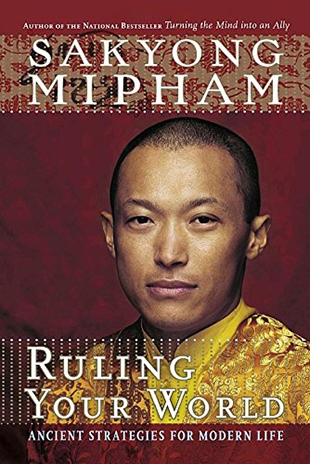Sakyong Mipham is the leader of Shambhala, a worldwide network of meditation and retreat centers. He writes a regular column in the Shambhala Sun and is the author of Turning the Mind into an Ally. Mipham tells this story to set the tone for the spiritual teachings from Tibetan Buddhism which follow:
"As a child, I was struck by the story of the prince and the pauper. The Tibetan version of the story has it that the prince and the pauper are the same person. Through a series of mishaps, the prince grows up as a pauper, only later to discover that he is a child of the royal family and the future ruler of his kingdom. He was always a prince; he was never a pauper; the only thing that changed was his view. We are in a similar situation. We are all of royal birth."
The point is that we all have within us basic goodness. The Shambhala teachings can help us tap into that vein of gold and establish peace, compassion, and confidence in our lives. They challenge us to cultivate these virtues: the contentment of the tiger, the delight of the lion, the clear-seeing of the garuda, and the playful wisdom of the dragon.
Mipham uses the resources of Tibetan Buddhism to illuminate our condition. Here are a few examples:
- One of the major obstacles to achieving peace in daily life is the "me" project, where we are constantly putting ourselves above others or desperately trying to make "me" happy. This drains an amazing amount of energy and leaves us agitated on a regular basis.
- The word for jealousy in Tibetan means "crowded shoulders." We should only bother ourselves about what is happening in our own lives and not be comparing ourselves to others.
- We waste too much time on feelings of regret: Mipham would rather see us spending this same time appreciating our good fortune.
- On the subject of aggression, the author advises us to think of others. For instance, at tax time we could remember that others are suffering the same panic, worry, or irritation that we are.
- Mipham gives one of the best definitions of how karma works that we have come across in our readings: "Karma moves in two directions. If we act virtuously, the seed we plant will result in happiness. If we act nonvirtuously, suffering results. The word virtue and nonvirtue may sound moralistic, but karma is not based on any kind of judgment. It's just how reality works. If we're at the cosmic bank and we give the teller self-obsession and anger, what we get in exchange is based on the currency of pain. If we give the teller generosity or patience, what we get in return is based on the currency of happiness. The happiness we get in return for virtue could happen on the spot, or it could be delayed until some time in the future."
This book is overflowing with wisdom from the rich Tibetan tradition on how to take charge of our lives and find meaning in all that we do.
